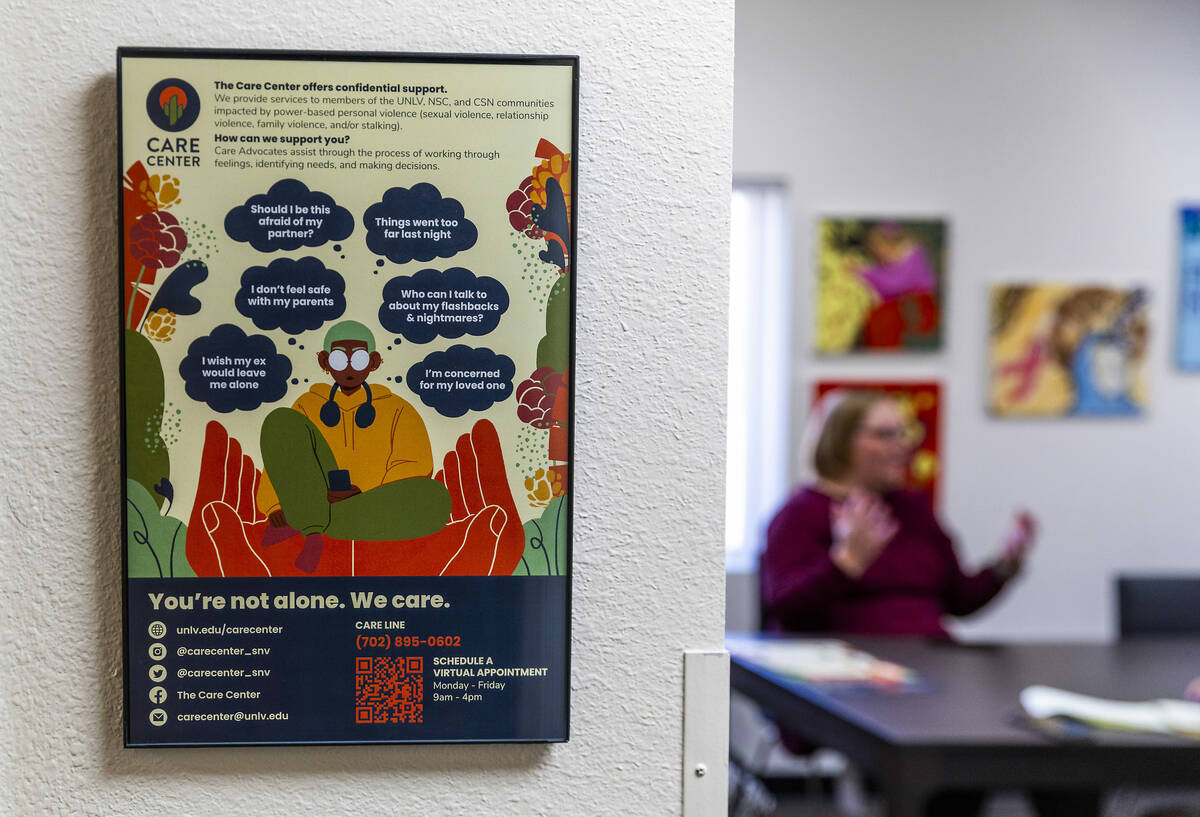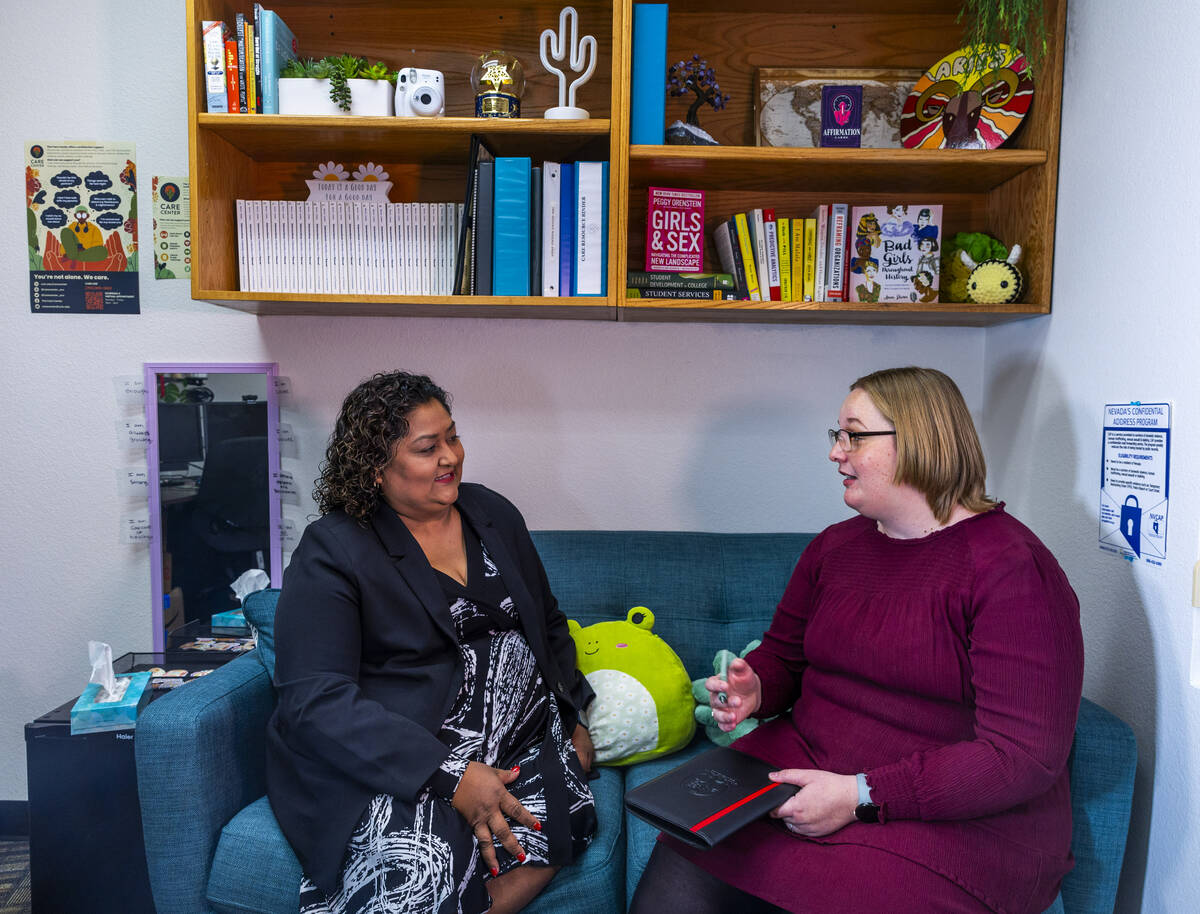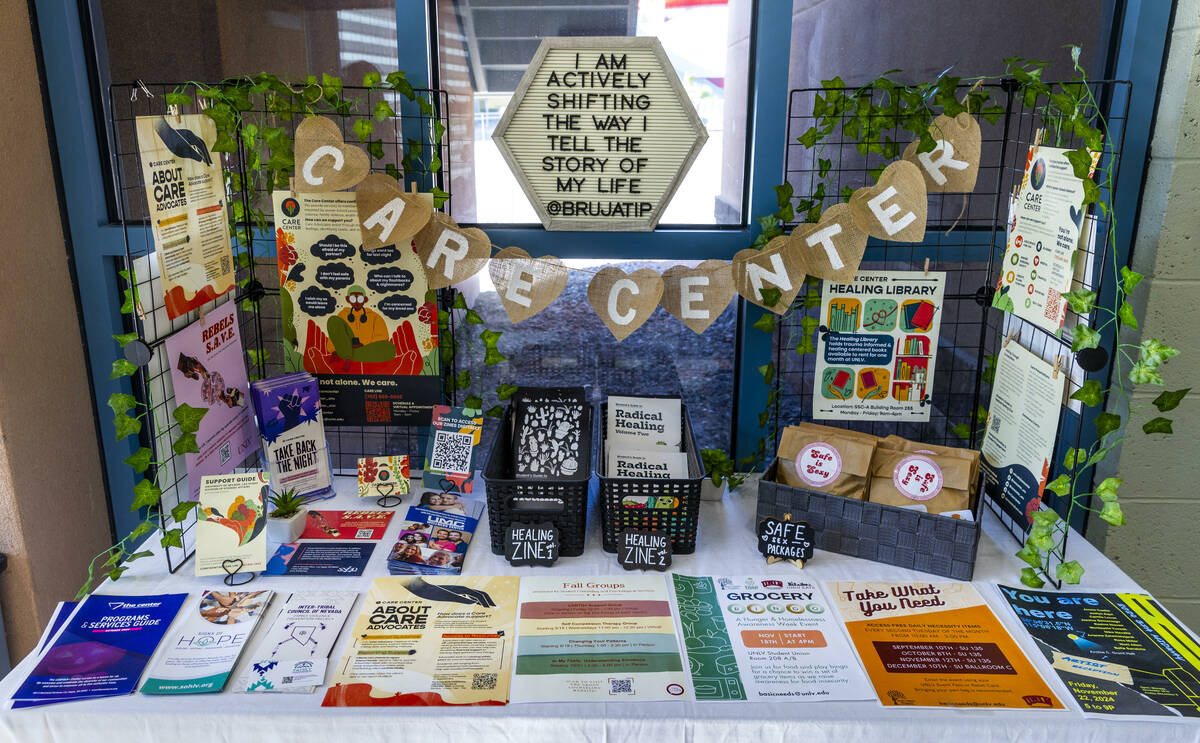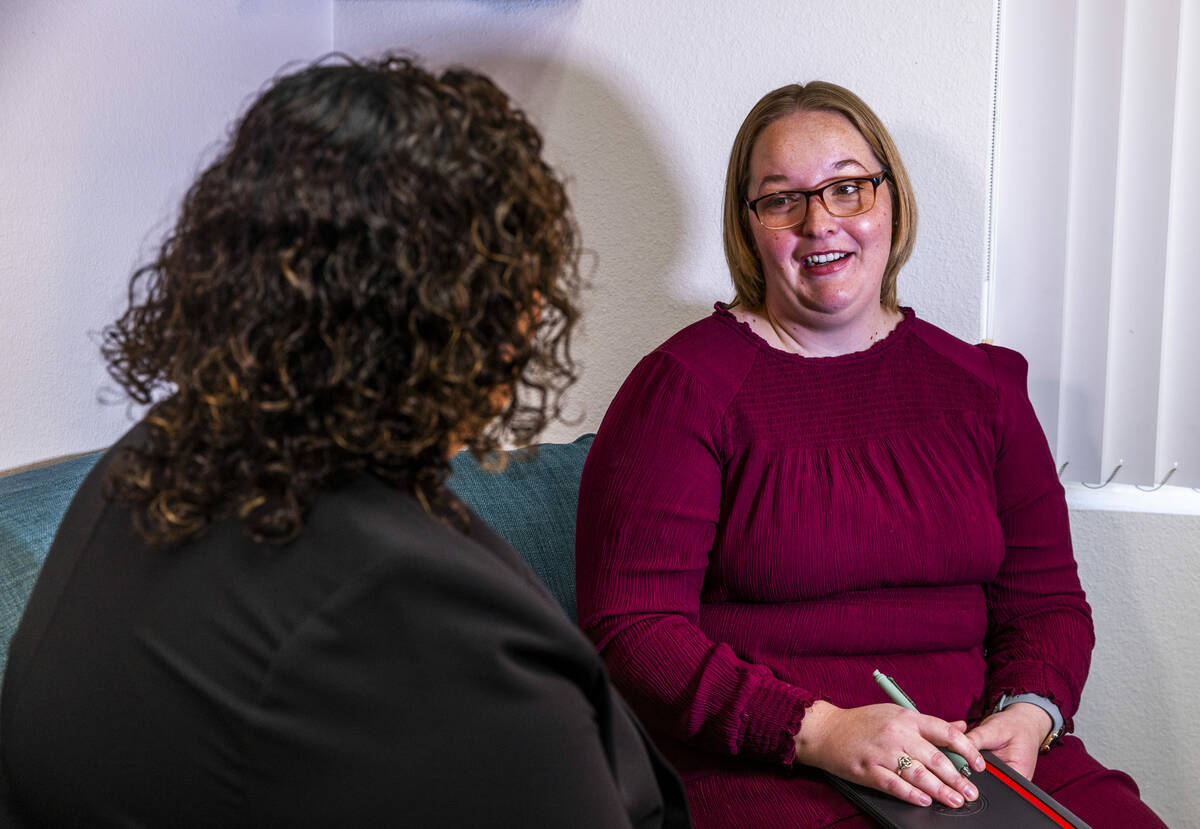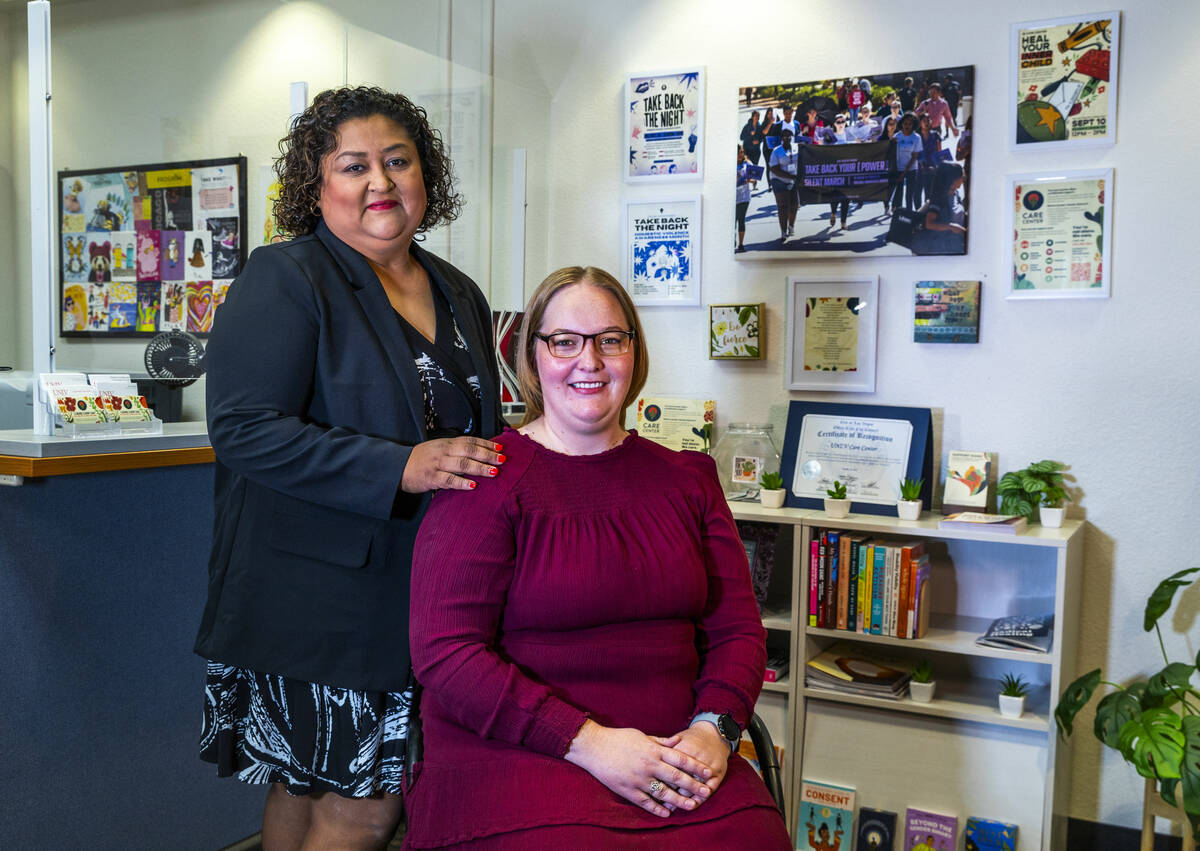UNLV center for addressing ‘power-based’ violence awarded federal grant
The UNLV Care Center has gone from only focusing on women’s issues to helping all students who are dealing with “power-based” violence.
“Power-based violence is all about power and control, and so we try and give back that power and control as best we can,” said Christina Hall, the center’s director.
The Care Center began in 1994 as the Jean Nidetch Women’s Center, started with funding from Weight Watchers founder Jean Nidetch. The office renamed itself the UNLV Jean Nidetch Care Center in 2020 to primarily focus on helping all students facing interpersonal violence, regardless of gender.
Hall said power-based violence is an umbrella term covering interpersonal violence such as sexual assault, domestic violence, harassment, stalking, child sexual abuse or abuse from a family member. The Care Center staff has noticed an increasing number of students seeking services for family violence, in particular, because of the large number of students at UNLV who live at home and commute to campus, Hall said.
“We have a high population of students who are more vulnerable to this type of violence,” she said.
In October, the Care Center announced that it was awarded $400,000 in grant money from the federal Office on Violence Against Women. The grant will be used to hire additional staff members and create a Coordinated Community Response Team, meant to better help students seeking services through the office.
Hall said the response team will be made up of various agencies throughout Las Vegas, such as the Metropolitan Police Department, the Las Vegas city attorney’s office, and the Nevada Coalition to End Domestic and Sexual Violence. The team will work to review policies at UNLV that could be improved in order to address interpersonal violence, as well as work on creating more efficient referral processes for students seeking resources through the Care Center.
As part of the grant, the center will look at how to incorporate mandatory education for students on power-based violence, which could take the form of online workshops or training sessions. The grant also gave the center funds to hire a bilingual case manager to serve the school’s Hispanic population.
Last academic school year, the Care Center saw 257 clients seeking services through the small office, which also serves students and faculty from the College of Southern Nevada and Nevada State University. The office has four full-time staff members and 13 student volunteers who are overseen by employees.
Ciara Davila-Galarza, a 24-year-old master’s social work student, is one of those volunteers. While working as a care advocate, Davila-Galarza said, a big part of her job is talking to the students who come into the office “just wanting to be heard.”
“We’re here to provide resources, but we’re also here to listen to them and just be friends with them,” Davila-Galarza said.
The student volunteers can’t offer counseling, but they can connect clients with community resources or accompany students who want to report incidents to campus police or the Title IX office. Long-term case management services are handled by staff members at the office, Hall said.
The center is aiming to increase its presence on campus to ensure that more students are aware of the resources available to them, even as the number of students seeking appointments continues to grow. The stigma around seeking resources to cope with power-based violence also seems to be decreasing with each generation of students, Hall said.
“There’s just more education folks can access now through the internet and things like that,” Hall said. “It’s easier to … self-identify as experiencing it than it was in the past.”
Contact Katelyn Newberg at knewberg@reviewjournal.com or 702-383-0240.



